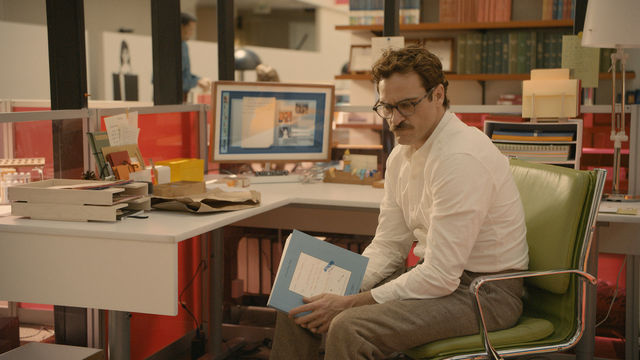Film Review: Joaquin Phoenix Really, Really Loves His New Computer In Her.
Joaquin Phoenix Loves His New Operating System. No, Literally.


“I can’t just control-alt-delete my feelings.”


